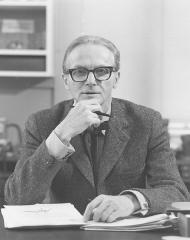The Phoebus cartel was a cartel of, among others, Osram, Philips and General Electric from December 23, 1924 until 1939 that existed to control the manufacture and sale of light bulbs.
The cartel is an important step in the history of the global economy because it engaged in large-scale planned obsolescence. It reduced competition in the light bulb industry for almost twenty years, and has been accused of preventing technological advances that would have produced longer-lasting light bulbs. Phoebus was a Swiss corporation named "Phoebus S.A. Compagnie Industrielle pour le Développement de l'Éclairage".
Members
Osram, Philips, Tungsram, Associated Electrical Industries, ELIN, Compagnie des Lampes, International General Electric, and the GE Overseas Group were members of the Phoebus cartel, holding shares in the Swiss corporation proportional to their lamp sales.
In 1921 a precursor organisation was founded by Osram, the "Internationale Glühlampen Preisvereinigung". When Philips and other manufacturers were entering the American market, General Electric reacted by setting up the "International General Electric Company" in Paris. Both organisations co-ordinated the trading of patents and market penetration. Increasing international competition led to negotiations between all the major companies to control and restrict their respective activities in order not to interfere in each other's spheres.
Purpose
The cartel was a convenient way to lower costs and worked to standardise the life expectancy of light bulbs at 1000 hours, while at the same time raising prices without fear of competition. Members' bulbs were regularly tested and fines were levied for bulbs that lasted more than 1000 hours. A 1929 table lists exactly how many Swiss francs had to be paid, depending on the exceeding hours of lifetime. This was not public knowledge at the time, and the cartel could point to standardization of light bulbs as an alternative rationale for the organization.
The cartel claimed that 1000 hours was a reasonable optimum life expectancy for most bulbs, and that a longer lifetime could be obtained only at the expense of efficiency, since progressively more heat and less light is obtained, resulting in wasted electricity.

